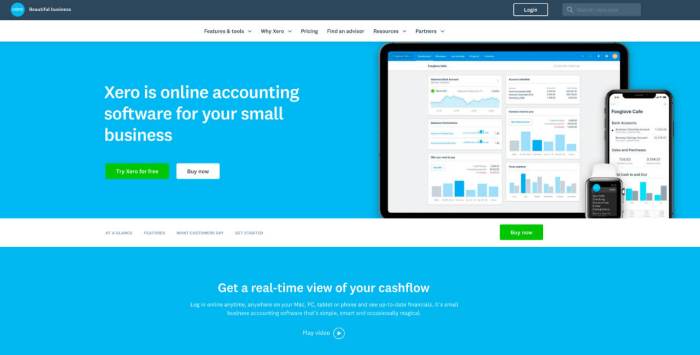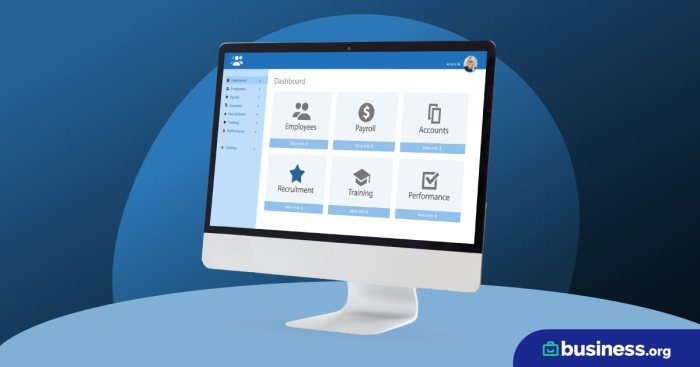Software for small business payroll – Managing payroll for a small business can feel like navigating a minefield. From calculating wages and deductions to ensuring compliance with ever-changing tax regulations, the process is often time-consuming and complex. Fortunately, the right payroll software can significantly alleviate this burden, freeing up your time and resources to focus on growing your business. This comprehensive guide will explore the key features, benefits, and considerations when selecting payroll software for your small business.
Understanding Your Payroll Needs: A Starting Point
Before diving into the world of payroll software, it’s crucial to assess your specific needs. Consider the following factors:

Source: usemultiplier.com
- Number of employees: The size of your workforce directly impacts the complexity of your payroll requirements. Software designed for small businesses (typically under 50 employees) will differ from enterprise-level solutions.
- Payroll frequency: Do you pay your employees weekly, bi-weekly, semi-monthly, or monthly? The software you choose should accommodate your preferred schedule.
- Payment methods: Will you be issuing paychecks, direct deposits, or utilizing other payment methods? Ensure the software supports your chosen approach.
- Tax regulations: Compliance with federal, state, and local tax laws is paramount. The software should automatically calculate and withhold the correct taxes based on your location and employee information.
- Budget: Payroll software solutions vary significantly in price. Determine your budget beforehand to narrow down your options.
- Integration needs: Will you need the payroll software to integrate with other business applications, such as accounting software or HR management systems?
Key Features of Effective Small Business Payroll Software
Choosing the right software involves understanding its core functionalities. Here are some essential features to look for:
Essential Features:, Software for small business payroll
- Employee data management: Securely store and manage employee information, including personal details, pay rates, tax information, and direct deposit details.
- Time and attendance tracking: Integrate with time clocks or utilize manual entry to accurately track employee hours worked.
- Automatic tax calculations: The software should automatically calculate federal, state, and local taxes, ensuring compliance with current regulations. This includes features like calculating payroll taxes, income tax withholding, and Social Security and Medicare taxes.
- Payroll processing: Generate accurate and timely payrolls with minimal manual intervention.
- Direct deposit: Offer seamless direct deposit capabilities to simplify employee payments.
- Reporting and analytics: Generate comprehensive reports on payroll expenses, tax liabilities, and employee compensation.
- Year-end reporting: Effortlessly generate W-2s and other necessary year-end tax forms.
- Security and compliance: Choose software that prioritizes data security and complies with relevant data privacy regulations.
Advanced Features (Consider these based on your needs):
- HR features: Some payroll software packages integrate HR functions, such as employee onboarding, performance management, and benefits administration.
- Mobile access: Access payroll information and perform tasks from any device.
- Integration with accounting software: Seamlessly integrate with your accounting software to streamline financial reporting.
- Customizable reports: Generate tailored reports to meet your specific reporting needs.
- Customer support: Reliable customer support is crucial for resolving issues and answering questions.
Choosing the Right Payroll Software for Your Small Business
The market offers a plethora of payroll software options. To make an informed decision, consider the following:

Source: appypie.com
- Read reviews: Consult online reviews from other small business owners to gauge the software’s performance and reliability. Sites like Capterra and G2 are excellent resources.
- Compare features and pricing: Create a spreadsheet to compare the features and pricing of different software options. Consider the value each offers relative to its cost.
- Free trials and demos: Take advantage of free trials or demos to test the software before committing to a purchase.
- Scalability: Choose software that can scale with your business as it grows.
- Customer support: Ensure the provider offers reliable customer support via phone, email, or chat.
Popular Payroll Software Options for Small Businesses
Several reputable providers offer payroll software tailored to small businesses. Examples include (but are not limited to):
- ADP: A well-established provider offering a range of payroll solutions.
- Paychex: Another leading provider with a strong reputation and comprehensive features.
- QuickBooks Payroll: Integrated with QuickBooks accounting software, providing a seamless workflow.
- Xero Payroll: A cloud-based solution known for its user-friendly interface and robust features.
- Gusto: Popular for its ease of use and comprehensive benefits administration features.
Note: This is not an exhaustive list, and the best option will depend on your specific needs and preferences. Always conduct thorough research before making a decision.
Frequently Asked Questions (FAQs)
- Q: How much does payroll software cost? A: Pricing varies significantly depending on the provider, features, and number of employees. Expect to pay a monthly or annual subscription fee.
- Q: Is payroll software secure? A: Reputable providers prioritize data security and compliance with relevant regulations. Look for software with robust security measures, such as encryption and access controls.
- Q: Can I integrate payroll software with my accounting software? A: Many payroll software solutions offer integration with popular accounting software packages, streamlining your financial processes.
- Q: What if I make a mistake in payroll? A: Most payroll software providers offer customer support to help you correct any errors. However, it’s crucial to double-check your data before processing payroll.
- Q: Do I need to be tech-savvy to use payroll software? A: Most modern payroll software is designed to be user-friendly, even for those with limited technical experience. However, some learning curve is expected.
References
- IRS Website for Small Businesses
- SHRM (Society for Human Resource Management)
- Capterra Software Reviews
- G2 Software Reviews
Conclusion
Implementing payroll software is a strategic move for any small business seeking efficiency and compliance. By carefully considering your needs, researching available options, and choosing a solution that aligns with your budget and long-term goals, you can streamline your payroll process, reduce administrative burdens, and focus on what truly matters: growing your business.
Call to Action: Software For Small Business Payroll
Ready to simplify your payroll? Explore the options mentioned above and find the perfect payroll software for your small business today! Start your free trial or request a demo to experience the benefits firsthand.
FAQ Corner
What are the common features of small business payroll software?

Source: business.org
Common features include tax calculations, direct deposit, employee information management, timesheet tracking, reporting and analytics, and integration with accounting software.
How much does small business payroll software cost?
Pricing varies widely depending on the features, number of employees, and provider. Options range from free (often with limited features) to monthly subscription models.
Is it difficult to learn how to use payroll software?
Most software is designed with user-friendliness in mind. Many offer tutorials and support resources to ease the learning curve. However, the complexity can depend on the chosen software’s features and your prior experience.
